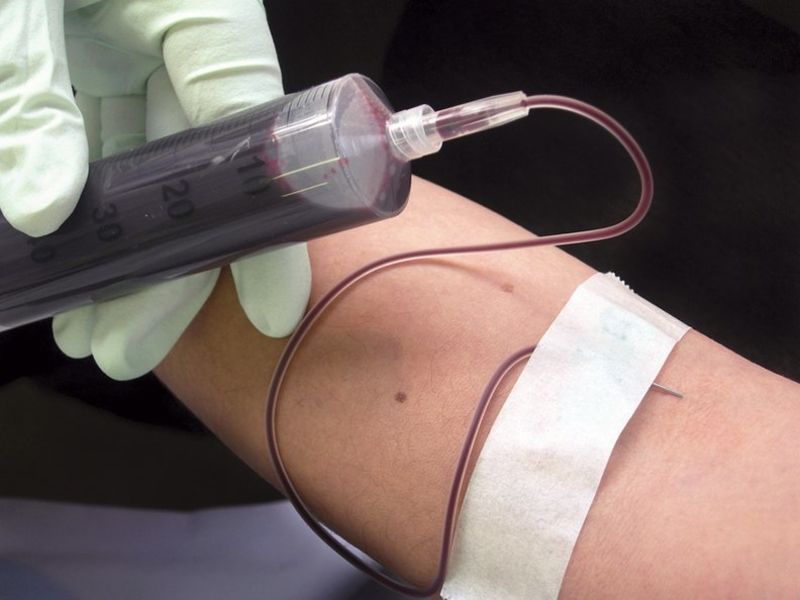More than 80% of the donated blood supply in the U.S. now carries COVID-19 antibodies from vaccinations or past infections, according to an analysis published Thursday.
The prevalence of COVID-19 antibodies among blood donors has steadily increased since vaccines began to be administered in December. Antibodies developed from previous COVID-19 infections were detected in around 3.5% of the more than 1.4 million donated blood specimens studied from July through December 2020, then it increased to 20% by May 2021 as vaccines become more widely available.
Overall, more than 83% of donated blood examined in May had COVID-19 antibodies, according to a study published in the Journal of the American Medical Association.
The findings suggest efforts to reach herd immunity—the point at which enough people have COVID-19 antibodies that the virus spreads less easily—is unlikely to be achieved without getting more people vaccinated.
Experts have estimated at least 70% of the U.S. population would need to get fully vaccinated to achieve herd immunity. As of Aug. 13, just over half of the total U.S. population was fully vaccinated, according to the Centers for Disease Control and Prevention. More than 171,000 new cases of COVID-19 were reported on Sept. 2.
Previous research indicates that individuals who developed antibodies due to past infections could have a level of protection comparable to the vaccines, somewhere between 80% and 95%.
The JAMA study’s authors warn more research is needed to understand the relationship between the prevalence of antibodies and herd immunity. A large unknown factor is whether the continued circulation of coronavirus variants— uch as delta and the newly discovered “mu”—might cause protection to wane sooner in those who develop antibodies from previous infection, getting vaccinated or both.
“The longer the virus persists, the more likely new variant will arise,” said Dr. Baia Lasky, medical director of biomedical services for the American Red Cross. The variants make it difficult to speculate when the country might reach herd immunity, she said.
Shortages of donated blood have persisted, while the level of demand has increased, Lasky said. The Red Cross’s supply distribution to hospitals has risen by 10% over last year as more patients get elective surgeries they or their providers postponed last year due to concerns over COVID-19.




